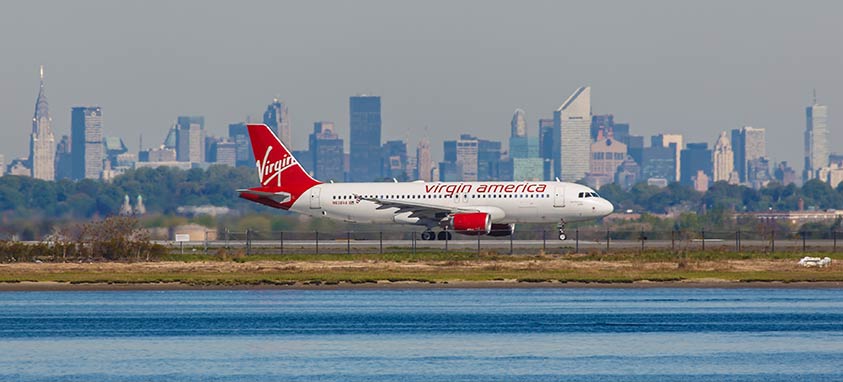The time has come to say goodbye to perhaps the hippest airline on the market. On March 22, Alaska Airlines announced its plan to eliminate the Virgin America brand, with an official termination to occur in 2019. Last year Alaska purchased Virgin for $2.6 billion.
Sangita Woerner, Alaska Airlines vice president of marketing, remarks, “We spent the last 10 months conducting extensive research and listening carefully to what fliers on the West Coast want most. While the Virgin America name is beloved to many, we concluded that to be successful on the West Coast we had to do so under one name—for consistency and efficiency, and to allow us to continue to deliver low fares.”
Since the merger closed in December, Alaska has been striving to enhance the combinednetworks. The merger made Alaska the fifth largest airline in the country with 1,200 daily flights and nearly 300 aircraft. The airline followed up the historic merger with the biggest route addition in its history; Alaska recently added 21 markets to its network with 25 new daily departures out of California cities such as San Francisco, San Diego, Los Angeles and San Jose. The move caters to Virgin America’s largely West Coast-based following.
Richard Branson responds
Business magnate Richard Branson created Virgin America in 2004 to launch an entirely new type of airline, as demonstrated by the lively ambiance (pink and purple lighting, hip background music) and extra amenities such as free Wi-Fi and on-demand food orders. The billionaire originally objected to the Alaska-Virgin merger. However, in keeping with U.S. regulatory requirements, he was unable to block the deal, as Virgin Group actually owned less than 25 percent of voting shares.
Regarding the news, Branson wrote on his blog, “Many tears are shed today…over Alaska Airlines’ decision to buy and now retire Virgin America. It has a very different business model and sadly, it could not find a way to maintain its own brand and that of Virgin America.”
Additionally, Branson wrote in a statement addressed to Virgin America, “George Harrison once said, ‘All Things Must Pass.’ This was the ride and love of a lifetime. I feel very lucky to have been on it with all of you. I’m told some people at Virgin America are calling today ‘the day the music died.’ It is a sad (and some would say baffling) day. But I’d like to assure them that the music never dies.”
Alaska still aims to keep many elements of Virgin America’s unique branding intact—it plans to preserve the airline’s quality in-flight entertainment, mood lighting, music and emphasis on exceeding normal flight expectations. Ultimately, the airline hopes it will continue to emanate a warm and hospitable “West Coast vibe.”
“Our goal from the very beginning of this merger was to become the go-to airline for people on the West Coast, with low fares, convenient flights, a premium product and genuine, caring service. Three months in, we’ve dramatically grown our presence in California and are united behind a new purpose: Creating an airline people love,” says Brad Tilden, CEO of Alaska Air Group.
The Alaska Air frequent flier program will become the sole loyalty program for both of the airlines beginning in 2018. Virgin America frequent fliers will have the option to convert points to Alaska’s program at a rate of one point per 1.3 miles. Despite initial skepticism from investors, Alaska Airlines stock has soared 18 percent since the merger was announced last year.




